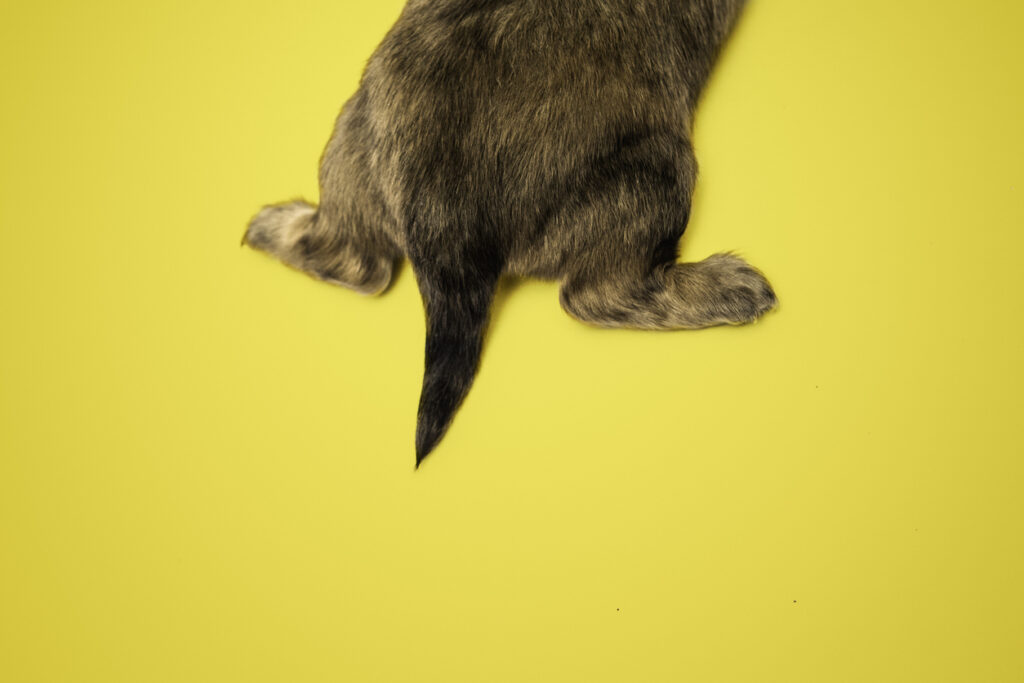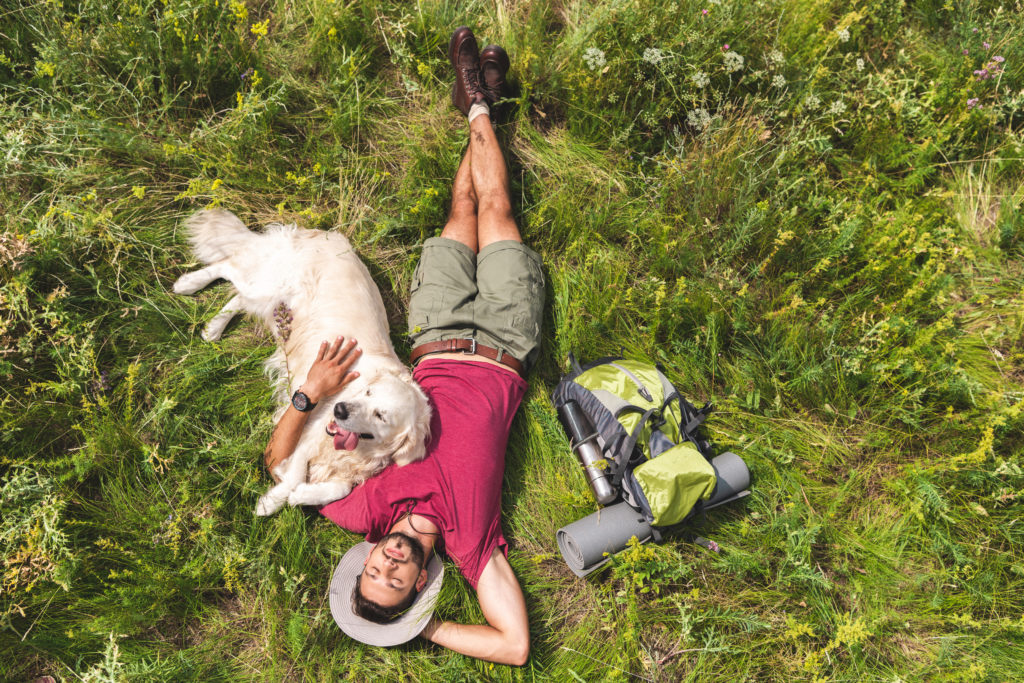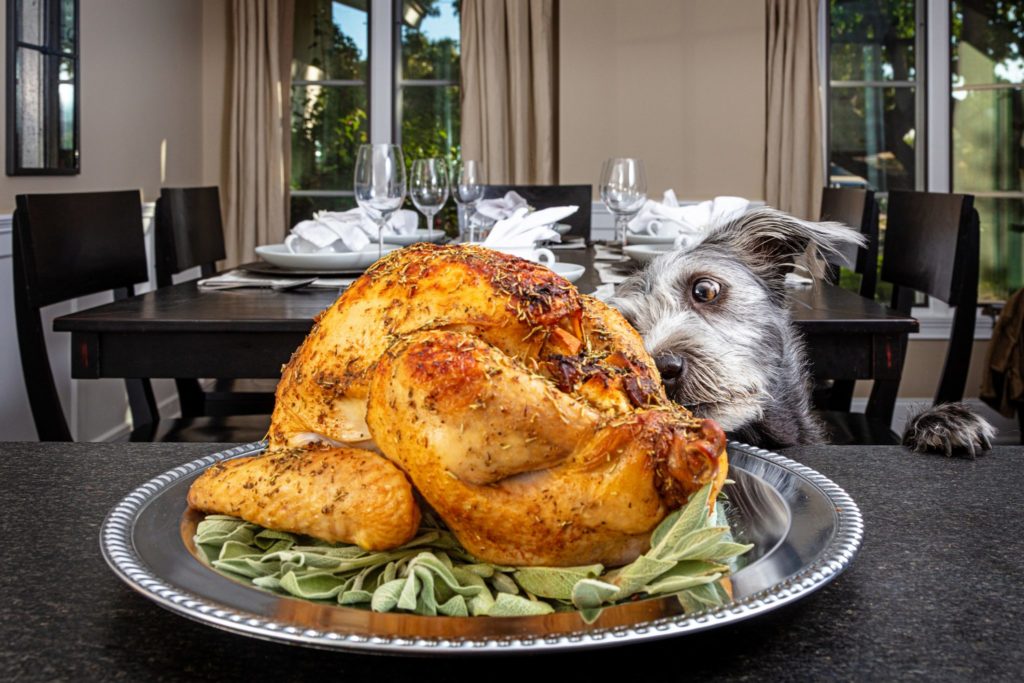Noticing that your dog is dragging their butt across the floor or ground can be a cause for concern and a probably uncomfortable situation for your furry friend. It’s not uncommon for dogs to exhibit absurd behavior from time to time. This behavior that may leave dog owners confused and worried is when their furry companion begins tugging their butt around the floor. Butt dragging is frequently an indication of a deeper problem that requires attention. In this article, we will look at some of the potential reasons why dogs drag their butts and give advice on what to do when faced with this situation.
Reasons Your Dog is Dragging Their Butt
If your dog is dragging their butt, there are a number of possible reasons they have started this behavior.
Anal Gland Problems
One typical reason for a dog to drag their butt is an anal gland problem. Dogs have anal glands that emit an aroma used to denote boundaries in their domain. When these glands become clogged, infected, or impacted, it can cause uneasiness and urge your dog to haul its bottom to alleviate it. If you notice your dog engaging in this behavior, it’s crucial to speak with your veterinarian. They can express the anal glands and provide necessary treatment if necessary.
Worm Infestation
Another expected factor of butt dragging is worm infestation. Certain worm species, such as tapeworms, can cause scratching and aggravate the anal area. Dogs may drag their bottoms to relieve the malaise caused by these parasites. Routine deworming treatments provided by your veterinarian can help prevent and treat worm infestations, reducing the probability of butt dragging.
Skin Irritation or Allergies
Skin irritation, allergies, or flea infestations can lead to itchiness across the anal area, prodding a dog to drag their butt. It’s vital to look at your dog’s skin for any signs of redness, rash, or bug bites. Consult with your veterinarian to identify the root cause and the best course of treatment options.
Foreign Objects or Injury
Occasionally dogs may tug their bottoms due to the presence of a foreign object or injury in the anal area. Carefully check your dog’s bottom and encircle the area for any obvious signs of damage or foreign objects. If you observe anything odd seek veterinary care to ensure proper evaluation and treatment.
Soiling
Long-haired dogs or dogs with abundant fur near the anal region may experience issues with sanitation and hygiene. Mats, feces, or other debris can become tangled in the fur, leading to discomfort and the impulse to drag their bottoms. Regular grooming and hygiene practices, including trimming the fur in the anal area and keeping it clean, can help prevent such issues.
Full Anal Sacs
Sometimes, a dog may drag their butt infrequently because their anal sacs are full. The anal sacs can become affected and painful, resulting in dragging behavior. Your veterinarian can express the anal sacs to provide comfort and avoid further issues.
Rectal Prolapse
Rectal prolapse occurs when the rectal tissue protrudes through the anus. It can cause agony and tenderness, leading to butt-dragging. If you suspect rectal prolapse, right away contact your veterinarian, as it requires medical intervention.
Urinary Tract Infections
These can cause discomfort and irritation in the genital area, which may lead to butt-dragging to alleviate the sensation. If you suspect a UTI, consult with your veterinarian for diagnosis and appropriate treatment.
Steps Your Vet May Take to Diagnose the Issue
Once you have decided it is time for your dog to see the vet in regard to this issue, here’s the likely steps they will take.
Physical Examination
The veterinarian will do a full physical examination of your dog, focusing close attention on the anal area. They may also ask about your dog’s medical history and any related symptoms.
Anal Gland Expression
If the veterinarian concludes that impacted or infected anal glands are the root of butt-dragging, they will manually express the glands. This procedure aids in easing discomfort and prevents subsequent problems.
Diagnostic Tests
The veterinarian can suggest additional diagnostic tests to pinpoint the exact cause of the butt dragging. These tests may include fecal examinations to check for parasites or other laboratory tests to rule out underlying infections or allergies.
Medical Management
Your veterinarian may suggest medication, depending on the cause of your pet’s behavior. This may include deworming medication for parasites, antibiotics for infections, anti-inflammatory medications for allergies, or other targeted therapies as necessary.
Surgical Intervention
In more severe cases, such as rectal prolapse or chronic anal gland issues, surgical intervention may be required. The veterinarian will discuss the options and potential benefits of surgery if it is deemed necessary.

Preventive Measures at Home
After noticing your dog’s butt dragging, here are the next steps to take.
Assess the Situation
The first step is to watch your dog’s behavior and judge how much dragging is going on. If your dog is just doing it rarely or gently, it may simply be a result of an itch or irritation.
Examine for External Irritation
Check your dog’s anal area for any symptoms of irritation, such as swollen, reddened tissue or discharge. This can imply an infection or other core health issues, like allergies or parasites.
Rule Out Internal Issues
If there is no evident outward irritation, your dog may be suffering from internal pain. Anal gland issues, constipation, or other gastrointestinal problems can cause dogs to drag their butt. Contact your veterinarian to rule out any internal health concerns.
Regular Anal Gland Expression
Your veterinarian might endorse regular at-home anal gland expression. This can be done by applying gentle pressure on the anal glands or with the assistance of a skilled groomer. Additionally, VO Vets offers anal gland expression as a part of any technician appointment.
High-Fiber Diet
Feeding your dog a high-fiber diet can foster regular bowel movements, which can aid in preventing anal gland impingement. Discuss with your veterinarian to determine the appropriate diet and fiber sources for your dog’s specific needs.
Proper Hygiene
Maintaining good hygiene in the anal area is essential. Regularly clean the area with mild, pet-safe wipes or warm water. Avoid using harsh soaps or chemicals that may irritate.
Prevent Parasites
Follow your veterinarian’s recommendations for regular parasite prevention, including flea control and regular deworming. This can help reduce the risk of parasites causing itching and discomfort in the anal area.
Allergen Management
If your dog has allergies, work with your veterinarian to identify and manage the allergens. This may involve dietary changes, environmental modifications, or the use of allergy medications as prescribed.
Scheduled Veterinary Check-ups
Timely routine veterinary to keep an eye on your dog’s overall health and handle any concerns as they arise. Regular examinations can help catch potential issues before they become severe.
How Long Does This Behavior Last?
The duration of butt-dragging in dogs can vary depending on the underlying cause. In some cases, the behavior may last only for a short period, while in others, it may persist until the underlying issue is addressed. It’s important to note that butt-dragging should not be ignored or left untreated, as it indicates discomfort or an underlying problem that requires attention.
Conclusion
When your dog starts dragging their butt, it’s crucial to address the issue promptly. Anal gland problems, worm infestations, skin irritation, foreign objects, or grooming issues can all contribute to this behavior. By seeking veterinary guidance, maintaining proper hygiene, regular grooming, and following preventive measures, you can help ensure your dog’s comfort and resolve any underlying issues causing butt dragging.
If your dog is dragging their butt near Fort Worth, TX, the expert veterinary team at VO Vets is here for you! Our team will look for the root cause of the issue and work to resolve it.. Give us a call today at 682.350.8890, or Request an Appointment Online.



